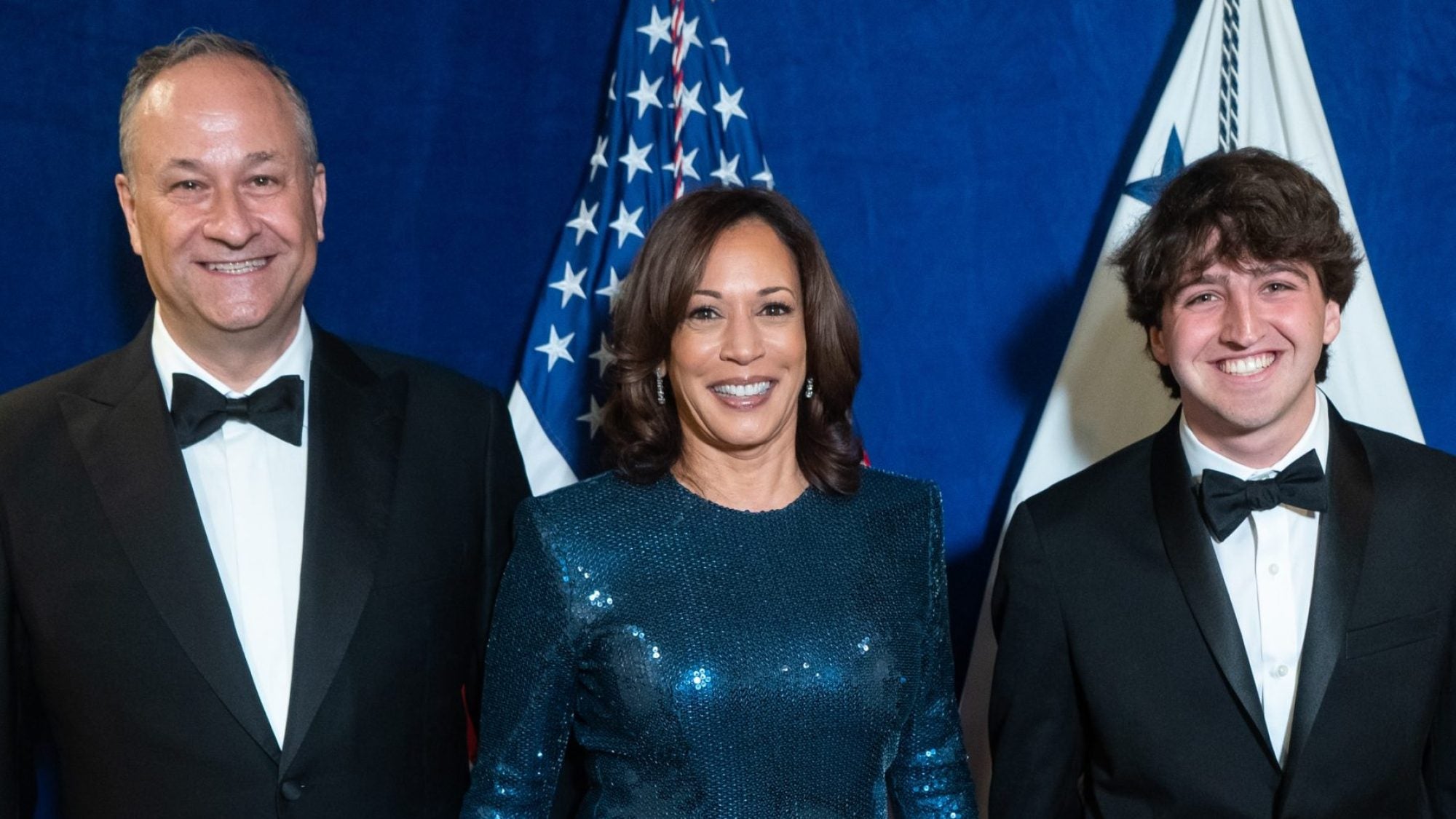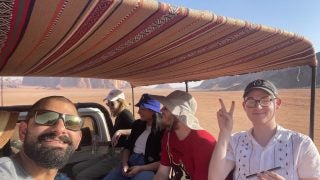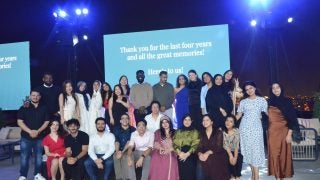At the 2023 White House Correspondents’ Dinner, the night’s headliner, comedian Roy Wood Jr., brought Gabe Fleisher (C’24) as a special guest.
Amid Hollywood celebrities, U.S. senators, representatives and political pundits, Fleisher stood in line for a photo op with Vice President Kamala Harris and Second Gentleman Doug Emhoff, who is also a Distinguished Visitor from Practice at Georgetown Law.
When he approached the two, Emhoff stopped him and said, “I read you every morning!” And just in case Fleisher didn’t believe him, Harris confirmed that her husband was indeed a fan of Fleisher’s work.
Fleisher was not some random guest amid the Beltway’s media and political elite.
He fit right in.
As the founder of the daily Wake Up To Politics (WUTP) newsletter, he commands a readership of tens of thousands, including key policymakers, journalists and, evidently, the second gentleman.
Today, he’s also just a 22-year-old senior at Georgetown ready to graduate.
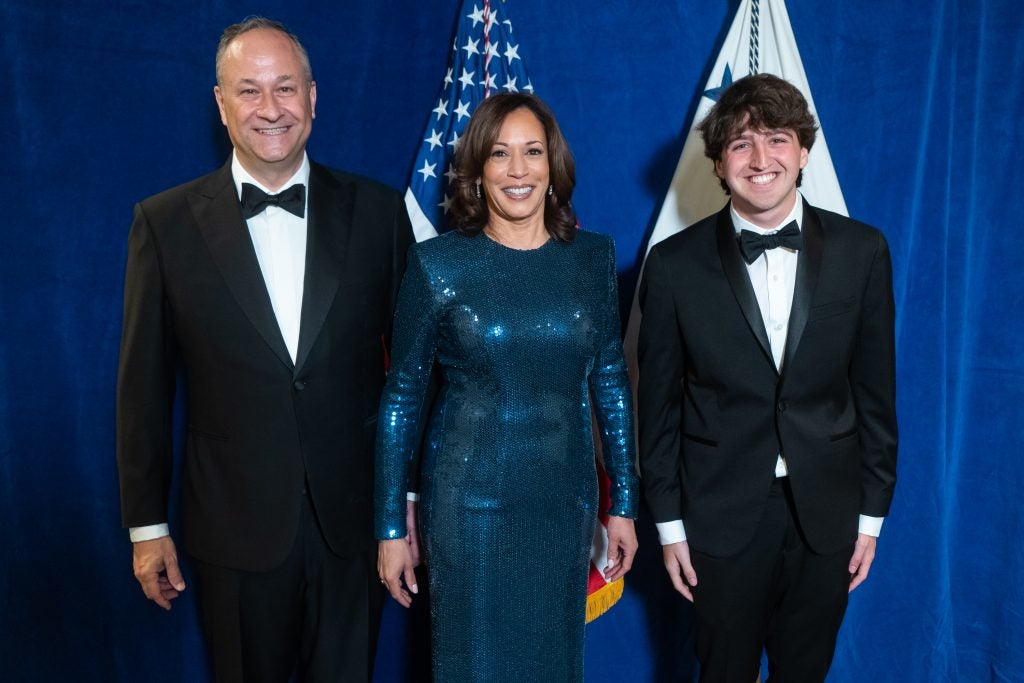
An Early Interest in Politics
Fleisher’s knack for politics started in 2008 when the election that propelled Barack Obama to the White House seized Fleisher’s attention — at the age of 6.
Over the next few years, he couldn’t help but talk about his newfound interest in politics with his family nonstop. Eventually, his mother suggested he fashion his thoughts into an email.
And so what started as a newsletter that only his mother read has since turned into a must-read newsletter for many of the political savants in the nation’s capital.
While Fleisher can’t pinpoint what exactly about politics grabbed his interest 16 years ago, he has a solid grasp on why he’s pursuing his path as a political journalist today.
“I think politics is interesting because politics is human. It’s all very up to chance. There’s yet to be any sort of statistical model or computer program that can predict American elections or votes in Congress with perfect accuracy,” Fleisher said. “There’s always something new. It’s always very fluid, very dynamic, and it matters.
Full-Time Student, Full-Time Journalist
As a rising political journalist in high school, Fleisher always hoped to leave his St. Louis home for the beating heart of American politics. Georgetown checked all of his boxes.
“Just being at Georgetown has afforded me the ability to be so close to the institutions that I cover,” he said. “To be able to race over to the White House or the Capitol on the same day that I’m taking a class.”
On the Hilltop, he said it’s not uncommon for students and professors to stop and ask if he’s “that kid that does the newsletter” or say they saw him on X, formerly known as Twitter.
But despite the attention, Fleisher said it’s always been important to compartmentalize his life. He thinks of WUTP as his online life separate from his real life with friends and college.
“The newsletter is very important to me and something obviously I’m very passionate about. But to me, it’s just something I do during X hours in the morning … And then for the rest of the day, it’s not my main focus. I’m a college student, and I’m here,” he said.
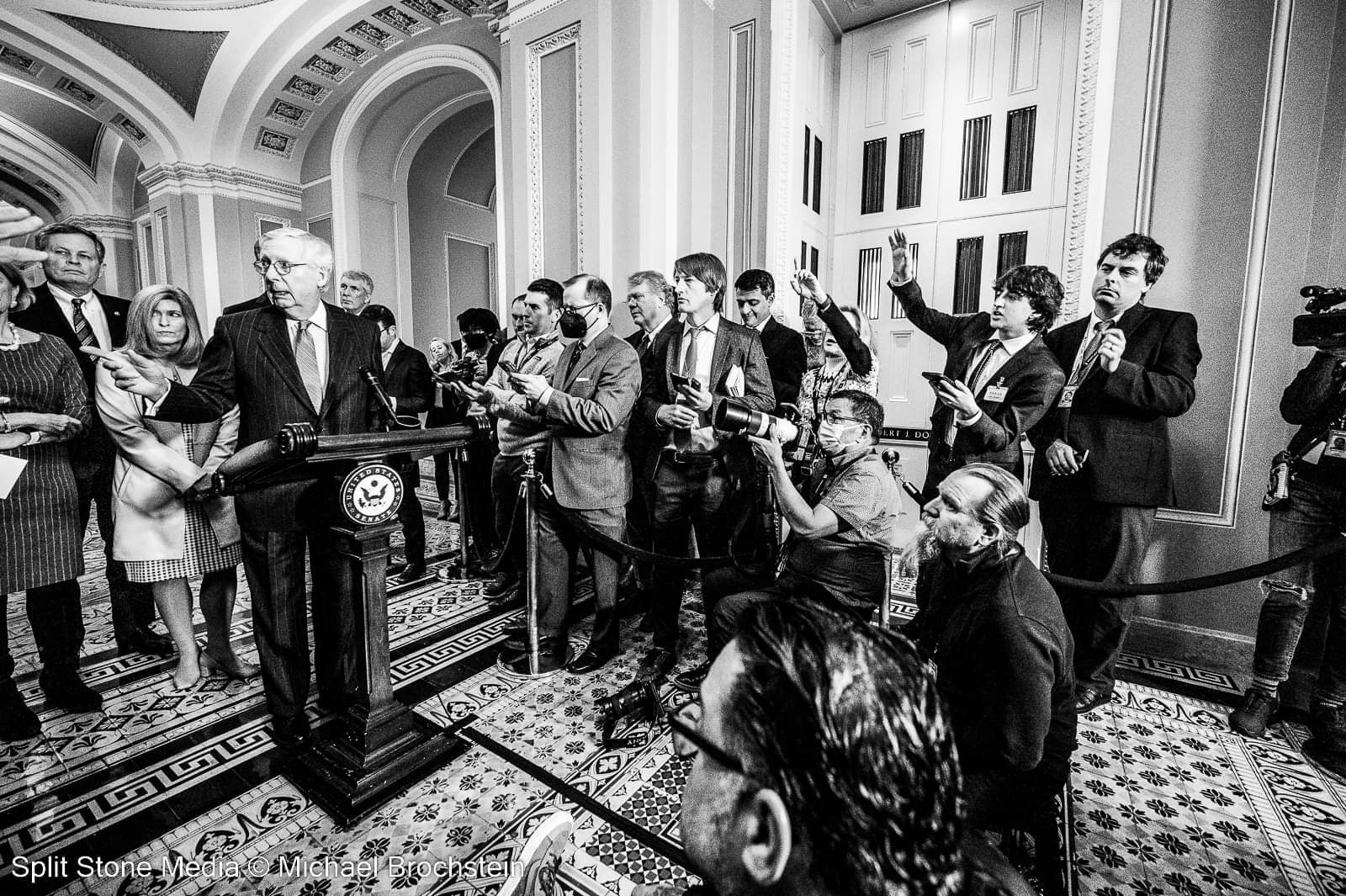
A typical day for Fleisher begins at 7 a.m. He’s laser-focused on researching, writing and preparing his newsletter to send out to his subscribers by 10 a.m. During the rest of the day, Fleisher takes advantage of free time between activities to prepare for upcoming newsletters, such as scouring congress.gov to read the latest bills coming through the legislative branch.
Fleisher also gets dozens of daily emails from subscribers on top of around 1,000 others from press lists and newsletters. He said his inbox is a mess but tries to respond to as many thoughtful comments and critiques from his readers as possible.
With a reduced course load in his final semester, Fleisher has invested even more time into WUTP, a trial run before he graduates and embraces his life as a full-time independent journalist. He’s conducted more interviews, covered more events around DC and written longer-form pieces.
This timing couldn’t have been better as Fleisher is plugged in to cover the 2024 election. While he has avoided traveling to battleground states to make the most of his final year on the Hilltop, Fleisher has done plenty in DC. Last fall, NPR invited Fleisher to appear on the 1A show the morning after every Republican primary debate to provide his analysis.
“There’s definitely been times I’ve been in a club meeting or whatever and watching a debate on my computer quietly,” he said. “I’d be up late watching the debates, then I’d be writing my newsletter, and then I’d be racing over to the NPR studio to be on their roundtable after each debate.”
As a government major with a journalism minor, Fleisher said several Georgetown classes have contributed to his growth as a political journalist. These classes range from constitutional law to AI policy and political journalism. The young reporter said he’s especially appreciated taking courses taught by full-time journalists from the New York Times and Associated Press, as well as David Gregory, the former host of Meet the Press.
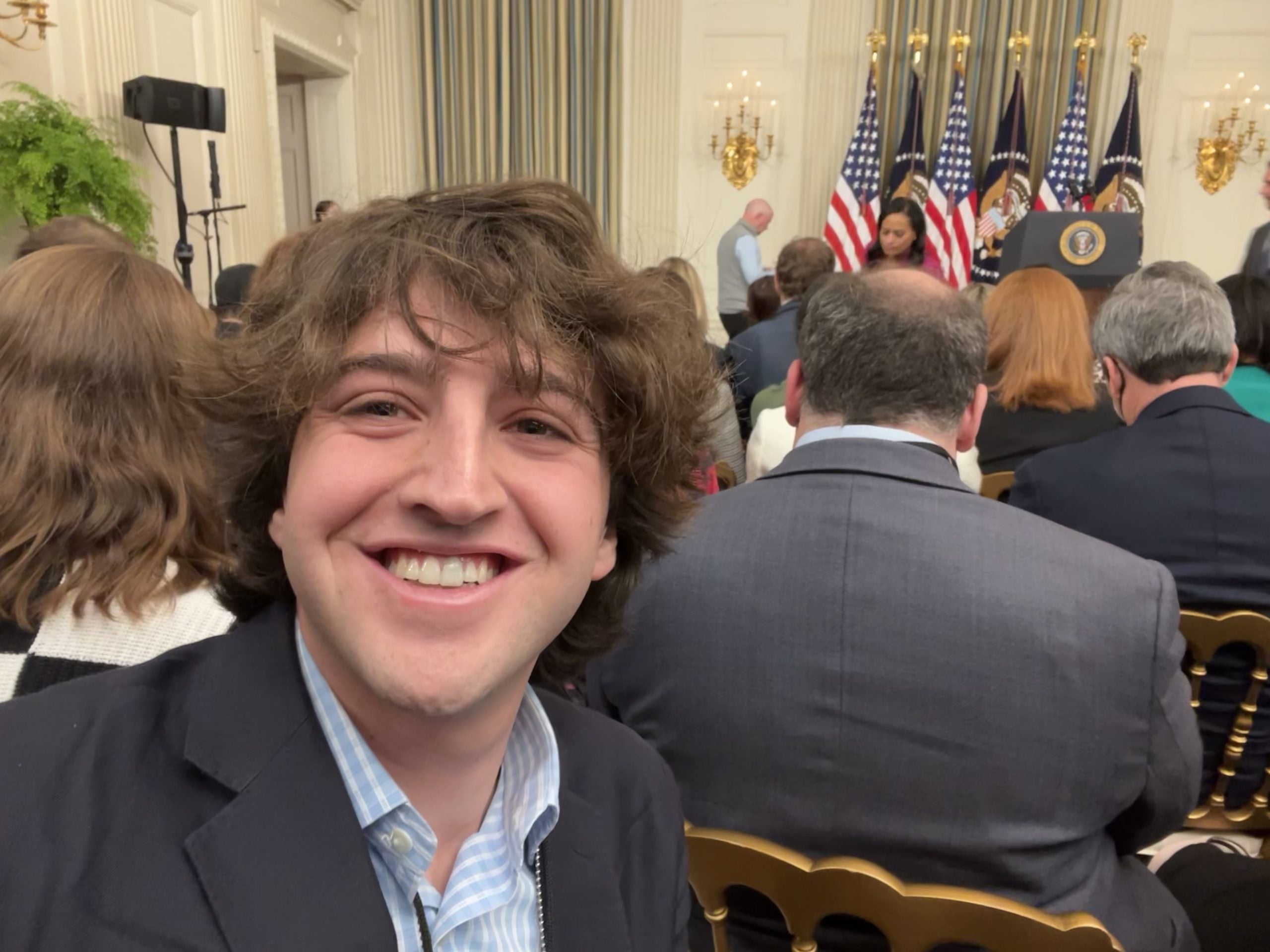
While Fleisher has always tried to keep WUTP separate from his life as a Hoya, at times, those two lives have come to a head. More often than not, Fleisher said professors familiar with WUTP would let him off easy for missing class to cover important events, like when he found out he received press credentials to his first White House press conference with President Joe Biden on the morning after the 2022 midterm elections. For professors who weren’t familiar with his work, Fleisher said he tended to leave out the details about why he was missing class.
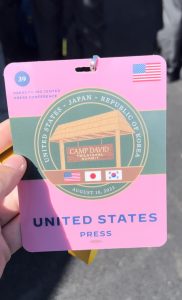
“It’s too much to explain,” he joked.
In his congressional reporting class, Fleisher had to skip class more than once for WUTP. But he had a good reason — he had to cover Congress.
Ask Fleisher what his favorite WUTP experience has been while at Georgetown, and he’ll tell you about going to Camp David to cover Biden’s trilateral summit with Japanese Prime Minister Fumio Kishida and South Korean President Yoon Suk Yeol.
“As a presidential history nerd, that’s a place that’s kind of mythologized, the Camp David Accords and so much other history that’s happened there,” he said. “Most of the journalists who have been covering the White House for a long time had never been able to do that, so it is literally a once-in-a-lifetime opportunity.”
Taking WUTP to the Next Level
As Fleisher prepares to walk the stage on Healy Lawn next week, he’s excited for what comes next: taking WUTP full-time and expanding his business.
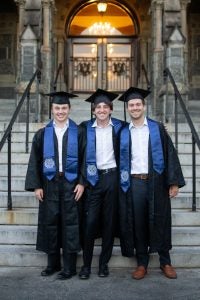
The graduating senior is especially looking forward to getting into podcasting and diversifying revenue streams for WUTP. While his newsletter currently runs entirely on donations, Fleisher hopes to add a new tier of content for paid subscribers while continuing to build on his free newsletter.
“I started this newsletter in 2011. That was before Punchbowl, before Axios, before Substack, before the New York Times really had a newsletter product,” Fleisher said. “I had a bit of a headstart in thinking through what makes a good newsletter and why newsletters are a great vehicle to reach an audience.”
Reflecting on the changing media landscape and the rise of AI, Fleisher said he’s been thinking about how to set WUTP apart from the competitive landscape while adapting to the rapidly evolving demand from consumers.
“I think readers more and more in this era expect a level of authenticity from their journalists. They want transparency. They want to see how journalists are arriving at their conclusions,” he said. “When you’re reading bigger news outlets that might start to experiment with AI journalism, the role of independent news outlets, with human voices that audiences trust and know are authentic, is only going to become more important …. I think that’s going to be really critical to the next few years in media.”
